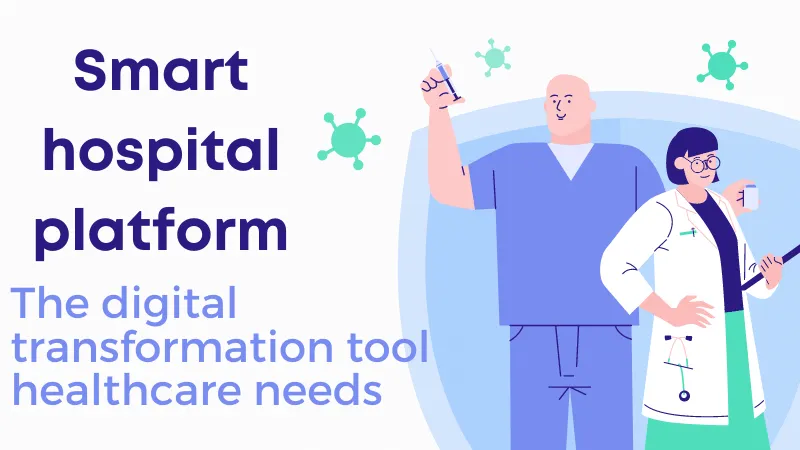
Zyter Smart Hospitals applications promises to unite design systems, IoT devices, programs, and sensors to one enormous system of efficient, compact maintenance.
Digital health firm Zyter has established a new tool designed to turn big, complex health care technology deployments into one unified smart system. Called Zyter Smart Hospitals, the 5G-prepared platform is intended to function as"an end-to-end smart option that joins a hospital's disparate information programs, departments, individuals, and the most recent Web of Things (IoT) technologies apparatus," Zyter stated in a media release.
Smart Hospitals utilizes Zyter's present electronic communication and collaboration applications to unite at-home and bedside device tracking, patient monitoring, IoT apparatus and detectors, asset monitoring, team communication, and facilities management to some"comprehensive, smart solution."
Together with merging a lot of different programs into a centralized location, Zyter Smart Hospitals additionally comprises a patient program that interfaces with detectors and IoT apparatus in hospital buildings to steer patients to appointments and parking areas, in addition to displaying wait times for appointments.
Together with the patient navigation System, Zyter highlights five Additional Important Characteristics of the System Which, If combined, have the potential to help Health Care make the Jump from siloed Technology to integrated Associations:
1. Hospital mattress device tracking, which Zyter clarifies as the heart of this wise hospital, collects data from each the health care devices which are linked to your patient's mattress, such as blood flow, heart rate, IV drip rate, along with other detectors. Nurses can monitor patient vital signals from beyond a patient's area, along with the platform also alarms healthcare employees to changes in patient condition.
2. Patient monitoring capabilities, together with IoT wearables, may alert health care providers to possible flight dangers or disoriented dementia sufferers who leave their area or the hospital grounds, in addition to supplying data on sleep routines, ECGs, exercise, and other health histories.
3. Asset monitoring rolls hardware observation of items like wheelchairs, defibrillators, and other hospital equipment to some dashboard along with medication and vaccine tracking. Bluetooth-connected asset tags permit for temperature tracking of sensitive drugs and may be connected to devices as little as a EpiPen, and may also monitor chain of custody by means of a device's or medication's whole life cycle.
4. Facilities management applications adds intelligent power management, light controllers, meters, HVAC, video surveillance, and object detection in precisely the exact same platform as all its elements, in addition to incorporating artificial intelligence (AI) tools to help manage power use.
5. Remote patient monitoring permits physicians to track the wellness of patients experiencing long-term testing or post-surgical care without patients having to be in the clinic.
"With Zyter, another generation of clever and connected hospitals will obtain the competitive benefit of a much safer and more private patient encounter, enhanced operational efficiencies for both doctors and personnel, and reduced building maintenance costs because of smarter energy direction," Zyter CEO Sanjay Govil said.
One To One Data Science Courses You May Like :
one to One data Science training
big data on aws online training
developing on aws online course







